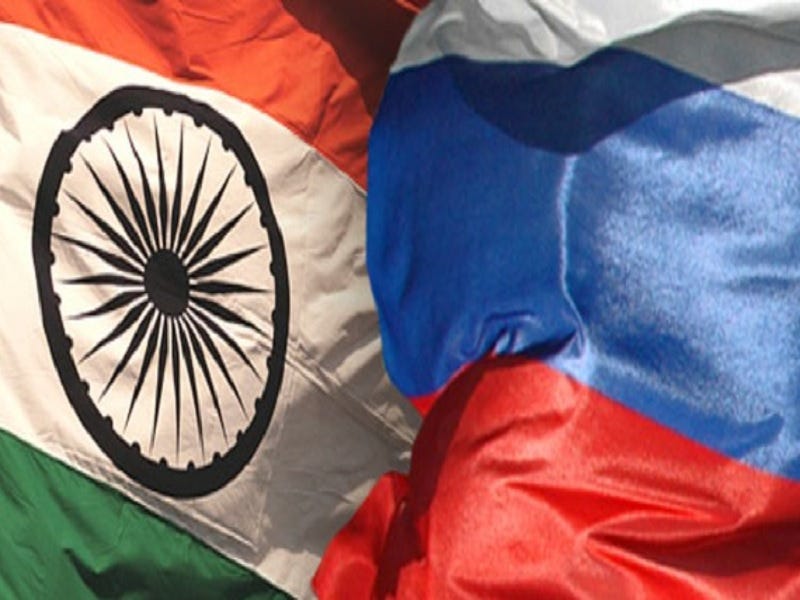Now’s The Perfect Time For Russia & India To Sign RELOS
Several trends are in the process of converging and thus raising optimism that this naval logistics pact might soon be signed by Russia and India, perhaps as soon as next month’s Eastern Economic Forum in Vladivostok.
Russia and India have been negotiating a Reciprocal Exchange of Logistics (RELOS) agreement in recent years but have yet to sign this pact for enabling their navies to use one another’s ports. It’s unclear why this hasn’t happened already but it might be due to a combination of the technical details involved as well as Moscow’s prior concern that it could inadvertently offend Beijing. Nevertheless, now’s the perfect time for those two Great Powers to take this major step in expanding their military cooperation.
The Russian Embassy in Delhi reported that their country’s newly promulgated Naval Doctrine “provides for establishment of the Russian logistics points with the necessary naval infrastructure in the Asia-Pacific region, the Indian Ocean and the Red Sea, with the enhancement of strategic cooperation with the Republic of India being among the top priorities of Russia’s naval policy in the Indian Ocean.” Crucially, this was announced a month ahead of September’s Eastern Economic Forum (EEF).
That event has served as a yearly milestone in the special and privileged Russian-Indian Strategic Partnership since it was first held in 2015. Prime Minister Modi’s participation in 2019’s EEF as President Putin’s guest of honor saw both leaders jointly unveil the Vladivostok-Chennai Maritime Corridor (VCMC), but the implementation of this megaproject was unexpectedly delayed by the onset of the COVID-19 pandemic several months later.
In the intervening three years, Russian-Indian relations have comprehensively expanded and they even agreed to a whopping 99-paragraph Partnership for Peace, Progress, and Prosperity during President Putin’s trip to Delhi last December. Moreover, India decisively emerged as Russia’s irreplaceable valve from Western pressure following the imposition of unprecedented sanctions against it earlier this year and thus preemptively averted Moscow’s potentially disproportionate dependence on Beijing.
That was nothing short of a game-changer in shaping the contours of the global systemic transition to multipolarity that unprecedentedly accelerated since the start of the Ukrainian Conflict. The state of strategic affairs is now such that Russia and India are jointly attempting to assemble a third pole of influence in the present bi-multipolar intermediary phase of this transition in order to maximize their autonomy vis a vis the American and Chinese superpowers.
Both Russia and India just showed the world that they don’t want to become China’s and the US’ “junior partners” respectively, which is what would have inevitably happened had Delhi not decisively become Moscow’s irreplaceable valve from Western pressure. That doesn’t mean that Russia and India are “against” China and the US respectively, but just that neither wants to enter into a position of potentially disproportionate dependence on them, hence why they use each other to balance them.
This development might very well have resulted in China no longer having any suspicions about RELOS since Beijing now sees that Delhi is strategically autonomous of Washington after repeatedly rebuffing its partner’s pressure for it to condemn and subsequently sanction Moscow. While Chinese-Indian relations remain complicated, they’re being managed at the bilateral level without the interference of any third parties like the US, which reassures Beijing of Delhi’s multipolar grand strategy.
Prior to the Ukrainian Conflict and India’s decisive strategic intervention as was earlier explained, China feared that its South Asian neighbor was serving as an American proxy. Furthermore, it could have been concerned about RELOS resulting in India more frequently traversing through the East and South China Seas en route to Vladivostok and thus informally functioning as a so-called “flag-waving exercise” of the US-led Quad even if this wasn’t Russia’s intention through that pact.
Now, however, China realizes that India has placed very real limits on its cooperation with the Quad with respect to prioritizing the creation of a regional cooperation network focused mostly on economic and other forms of non-military cooperation than the creation of a so-called “Asian NATO”, the role of which will arguably be played by AUKUS instead of that structure. These developments brought about by the Ukrainian Conflict could have greatly assuaged China’s prior strategic concerns about RELOS.
Several trends are therefore in the process of converging and thus raising optimism that this naval logistics pact might soon be signed by Russia and India. First, India proved its strategic autonomy vis a vis the US throughout the course of the Ukrainian Conflict. Second, Russia and India are actively attempting to assemble a third pole of influence in the present bi-multipolar intermediary phase of the global systemic transition to more complex multipolarity (“multiplexity”).
To that end, the third trend is that they’ve comprehensively expanded their bilateral relations and are diversifying them into new domains, including the naval one. Fourth, Russia’s desire to preemptively avert any potentially disproportionate dependence on China in the aftermath of the US-led West’s sanctions against it has seen it rely on India as its irreplaceable pressure valve, which brings the analysis around to the fifth trend of it encouraging a greater Indian role in its Far Eastern region.
To top it all off, Russia just promulgated its new Naval Doctrine that its Embassy in Delhi reported provides for the establishment of logistics points in the Indian Ocean and prioritizes cooperation with that body of water’s namesake civilization-state. All of this suggests that RELOS’ signing might come sooner rather than later and might even take place at next month’s EEF at the earliest. Even if it doesn’t happen at that time, there should be no doubt that both sides are preparing to finalize this pact.




